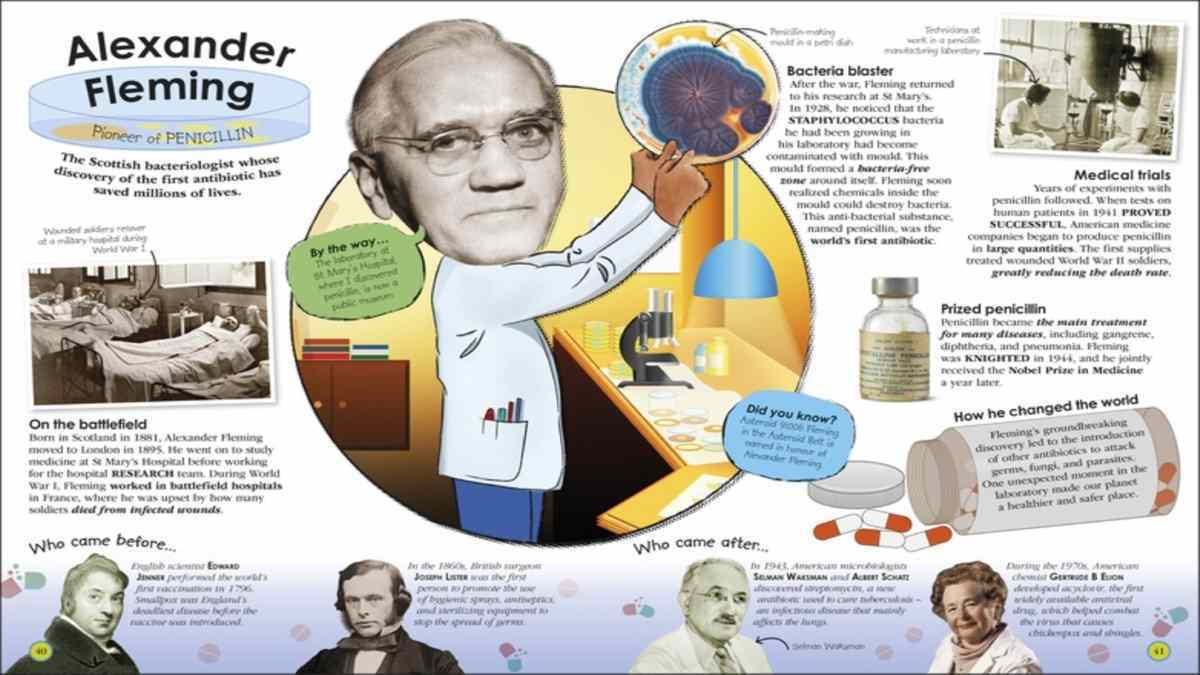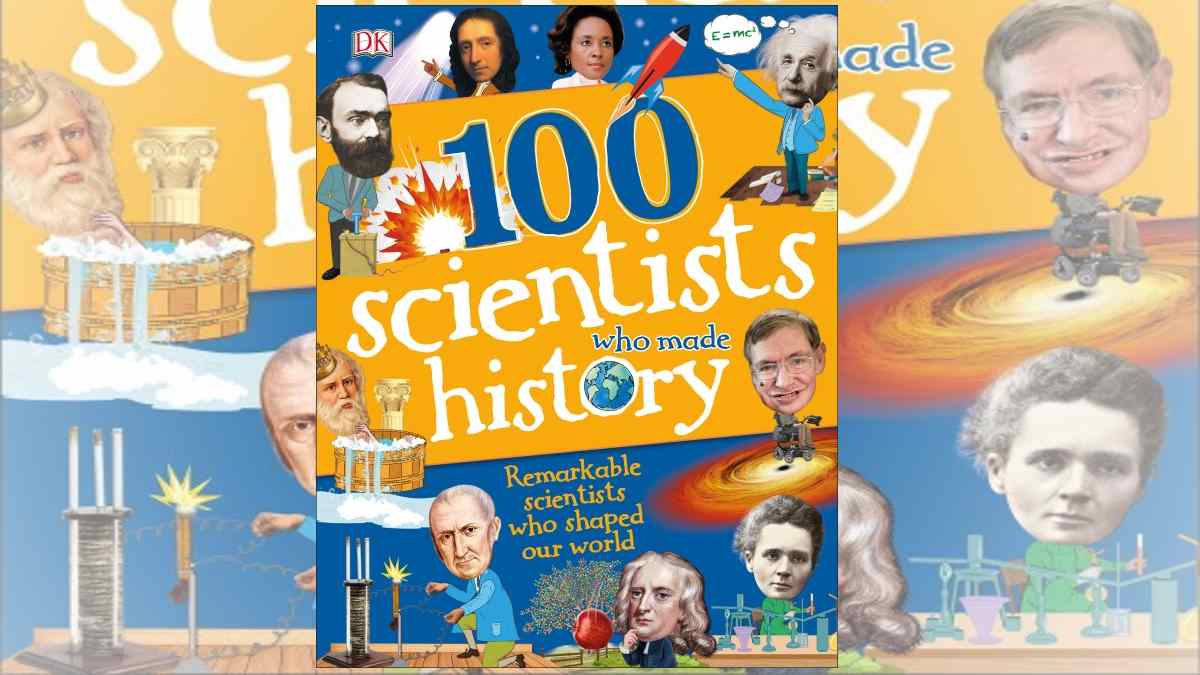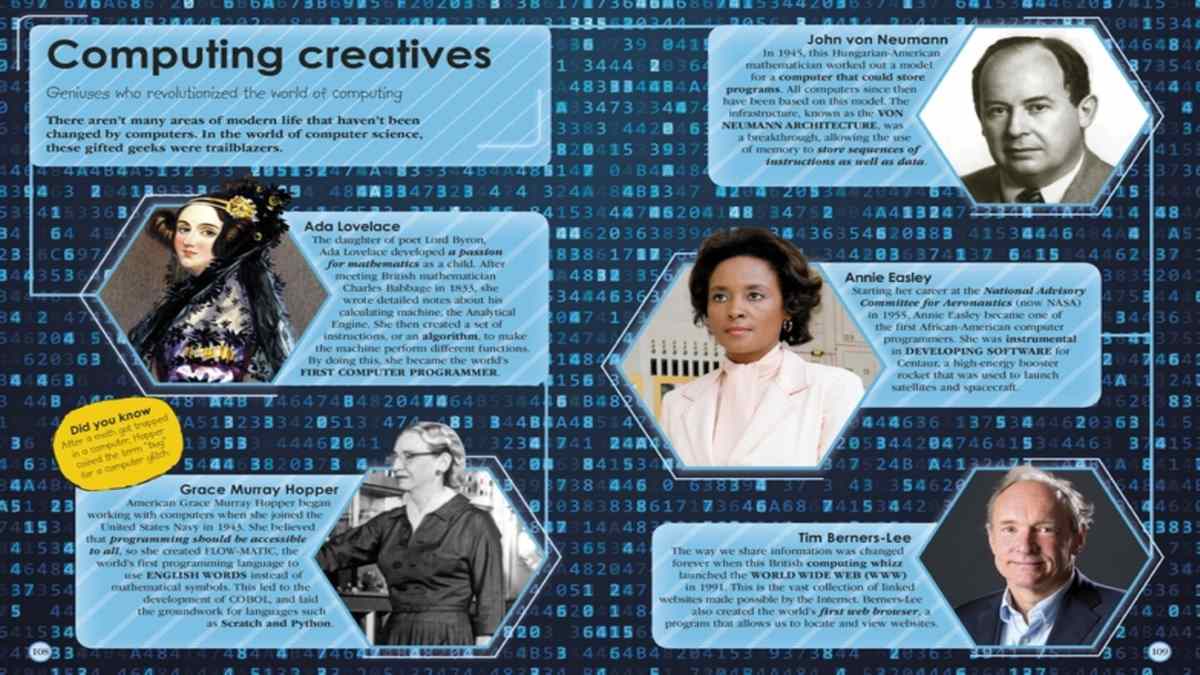This week’s word is “Scientist.”
Following on from last week’s Fantastically Great Women Who Made History is DK’s 100 Scientists Who Made History. As you might expect, it’s an excellent, informative book, filled with clear concise text and great pictures. It details the history of science by documenting the people who created it. It’s suitable for children aged 10 upwards.
How is 100 Scientists Who Made History laid out?
The book is broken down into 5 alliteratively titled sections:
- Perceptive Pioneers: The forefathers of science from Aristotle to Bacon.
- Brilliant Biologists: Including Mary Anning, Linnaeus, Darwin, and Lovelock.
- Clever Chemists: Boyle, Faraday, the Curies, Dorothy Crowfoot Hodgkin, and my personal favorite chemist, Dimitry Mendeleev, can all be found in this section.
- Phenomenal Physicists: From Copernicus and Da Vinci through to Einstein, Hubble, and Hawking.
- Incredible Innovators: Practical scientists such as Watt, Diesel, Ada Lovelace, and Tim Berners Lee.
At the very end of the book, there is a short section devoted to modern communicators of science such as David Attenborough and Carl Sagan.
 Giving Context
Giving Context
The strength of books such as this is that they provide context for how science developed. It helps you understand who was contemporary with whom, and which great scientists interacted with one another. (I mentioned this in my Timelines review, at the end of last year). At the foot of some of the pages of 100 Scientists, there is a strip of text that explains which science a particular scientist’s work was built on, and then, which scientists would go on to build upon that work. Sometimes this strip may just reference who came after, for example, for Faraday – James Clerk Maxwell, Edison, Hertz, and Edith Clarke. With similar sidebars for “What came before?” (and after), the book helps explain how science has evolved.
Most of the entries have “Did You Know?” text bubbles that give you snippets of esoteric information about the scientist and their life, and many also have a text box explaining “How I Changed the World.”
The book recognizes the contribution of 17 women to science, including Mary Anning, Ada Lovelace, Vera Rubin, and Rachel Carson.
Should You Buy 100 Scientists Who Made History?
If you’re looking for an accessible overview of the history of science and the people who made it, then it’s hard to imagine doing much better than this book. It provides an excellent summary of the lives and work of the world’s greatest scientific thinkers. It’s perfect for countless homework projects and for understanding how each of the scientific disciplines has evolved over time.
DK are well-known (especially if you read this column) for making quality and informative books. 100 Scientists Who Made History is no exception.
You can find 100 Scientists Who Made History, here in the US and here, in the UK. Don’t forget to check out DK’s other books in the series, including 100 People, 100 Women, and 100 Events that made history, here. (For those in the UK, that’s here!)
Disclaimer: I was sent a copy of this book to review.





